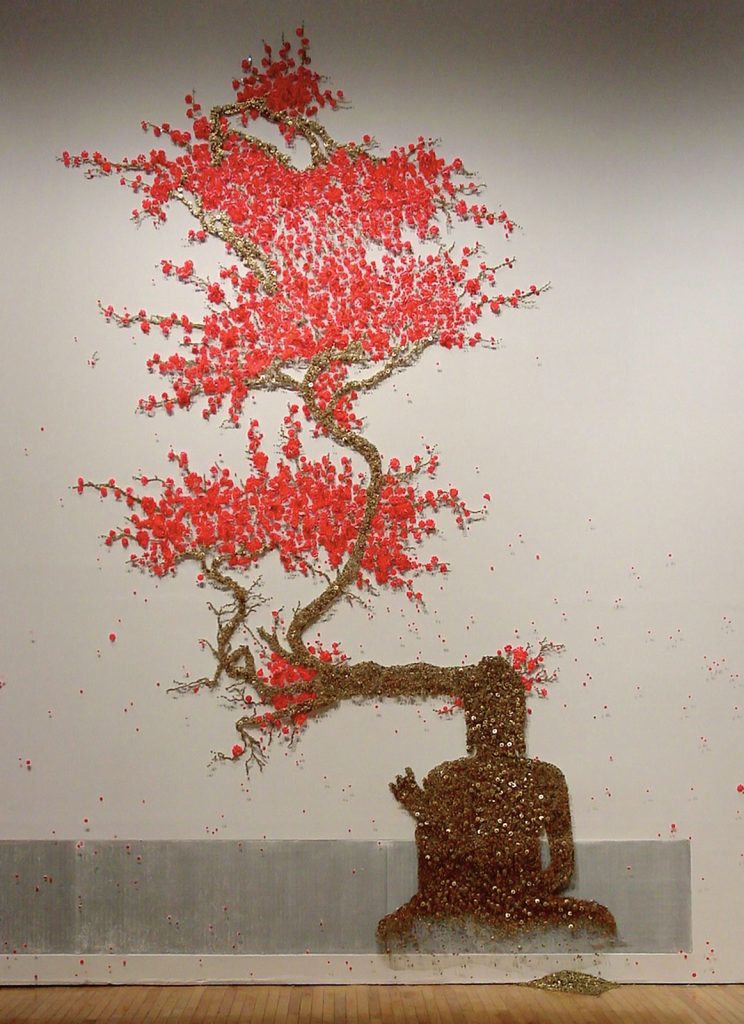The Buddha never meant for us to take as our mainstay anything or anyone else aside from ourselves. Even when we take refuge in the Buddha, Dhamma, and Sangha, he never praised it as being really ideal. He wanted us to take ourselves as our refuge: “The self is its own mainstay.” We can depend on ourselves and govern ourselves. We’re free. When we can reach this state, that’s when we’ll be released from our enslavement to greed, anger, and delusion—and be truly happy.
When we are slaves to the Buddha, Dhamma, and Sangha, we’re told to be generous, to observe the precepts, and to practice meditation—all of which are things that will give rise to inner worth within us. In being generous, we have to suffer and work because of the effort involved in finding wealth and material goods that we then give away as donations. In observing the precepts, we have to forgo the words and deeds we would ordinarily feel like saying or doing. In both of these activities are ways in which we benefit others more than ourselves. But when we practice meditation, we sacrifice inner objects—unskillful thoughts and mental states—and make our minds solid, sovereign, and pure.
The Buddha praised the practice of meditation as a way of paying homage to the Buddha, Dhamma, and Sangha that was better than offering material objects. The practice of training the heart to reach purity pleased the Buddha because it is the way by which a person can gain release from all suffering and stress. The Buddha taught us to meditate so that we can free our hearts from their slavery to the defilements of the world.
We’re still not released from suffering as long as our minds still have worries and concerns. Being a slave to our concerns is like being in debt to them. When we’re in debt, we have no real freedom in our hearts. The more we pay off our debts, the more lighthearted we’ll feel. In the same way, if we can let go of our various worries and cares, peace will arise in our hearts. This is why the Buddha taught us to center our hearts in concentration so as to give rise to stillness, peace, and the inner wealth with which we’ll be able to pay off all of our debts. All our burdens and sufferings will fall away from our hearts and we’ll enter full freedom.
Buying ourselves completely out of slavery is like farming land so that it can bear abundant fruit. When the mind is pure and the body soothed, it’s as if our farm has plenty of rain and groundwater to nourish our crops. Our concentration is solid and enters the first stage of absorption, with its five factors: directed thought, evaluation, rapture, pleasure, and singleness of preoccupation. Directed thought is like harrowing our soil. Evaluation is like plowing and scattering the seed. Rapture is when our crops begin to bud, pleasure is when their flowers bloom, and singleness of preoccupation is when the fruits develop until they’re ripened and sweet—and at the same time, their seeds contain all their ancestry. What this means is that in each seed is another plant complete with branches, flowers, and leaves. If anyone plants the seed, it will break out into another plant just like the one it came from. When we practice in this way, we’ll come to the reality of birthlessness and deathlessness—the highest happiness—and on into liberation.
This is how we repay all our debts without the least bit remaining. As the texts say, “In release, there is the knowledge, ‘Birth is no more, the holy life is fulfilled, the task done.'”
For this reason, we should be intent on cleansing and polishing our hearts so that they can gain release from their worries and preoccupations, the source of pain and discontent. Peace, coolness, and a bright happiness will arise within us, in the same way as when we unshackle ourselves from our encumbering burdens and debts. We’ll be free—beyond the reach of all suffering and stress.
♦
From Food for Thought: Eighteen Talks on the Training of the Heart © 1989 by Ajaan Lee Dhammadharo, translated from the Thai by Thanissaro Bhikkhu. Available online at http://www.accesstoinsight.org.
Thank you for subscribing to Tricycle! As a nonprofit, we depend on readers like you to keep Buddhist teachings and practices widely available.
